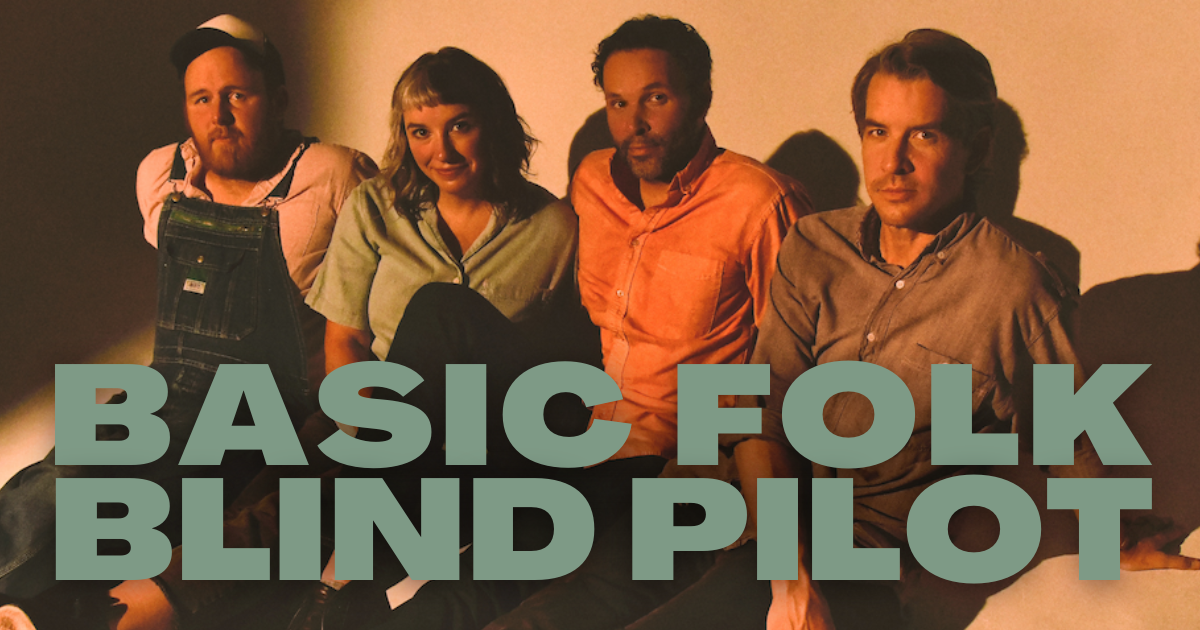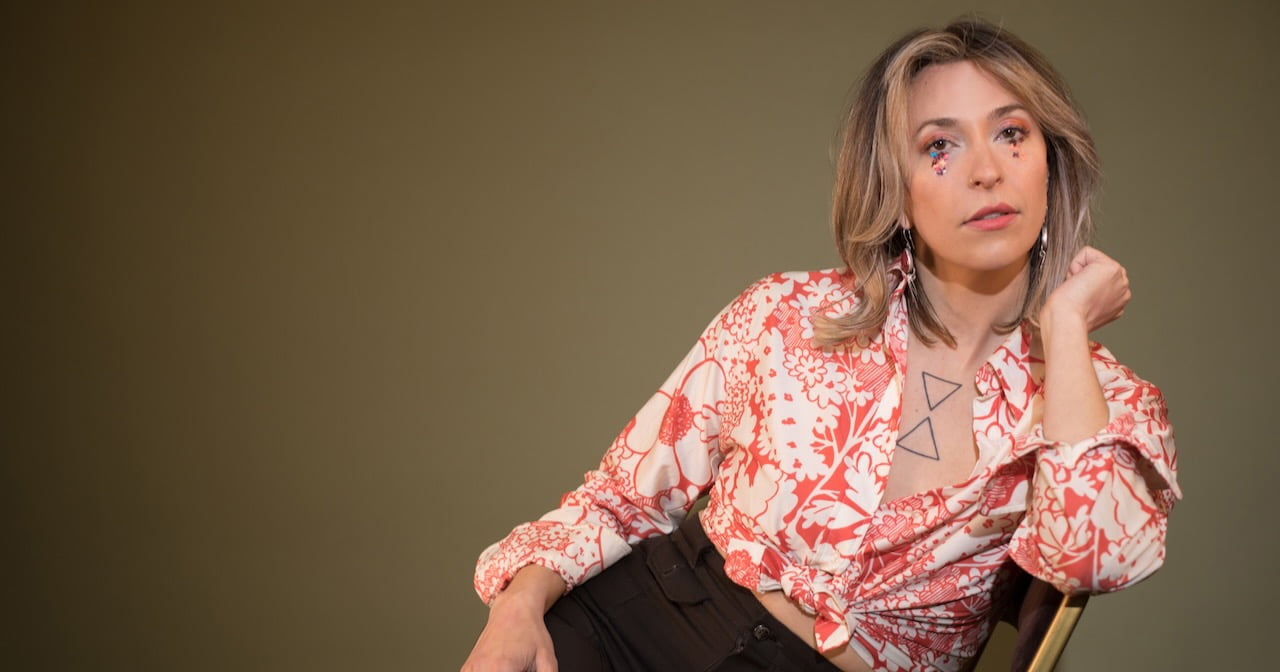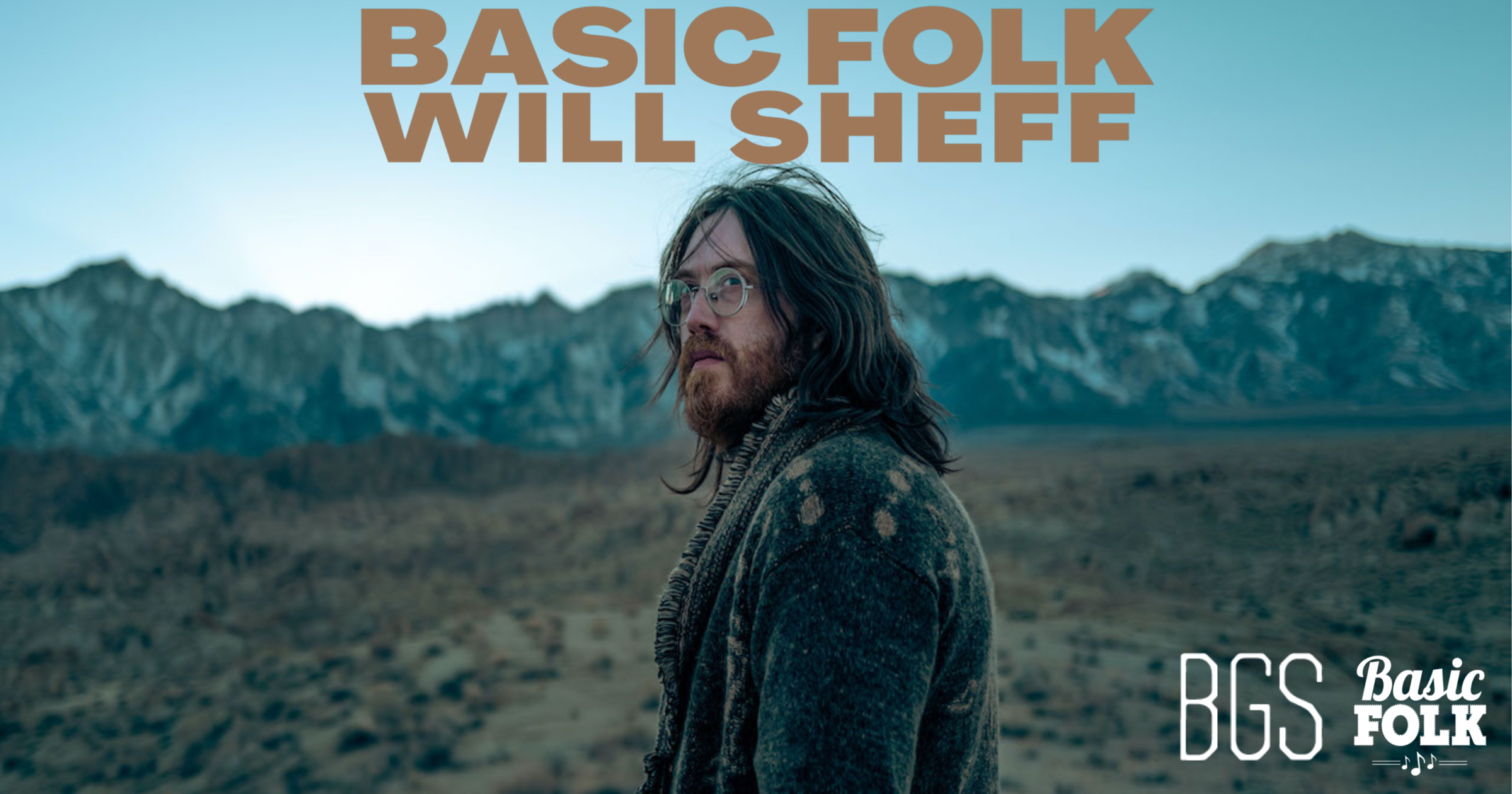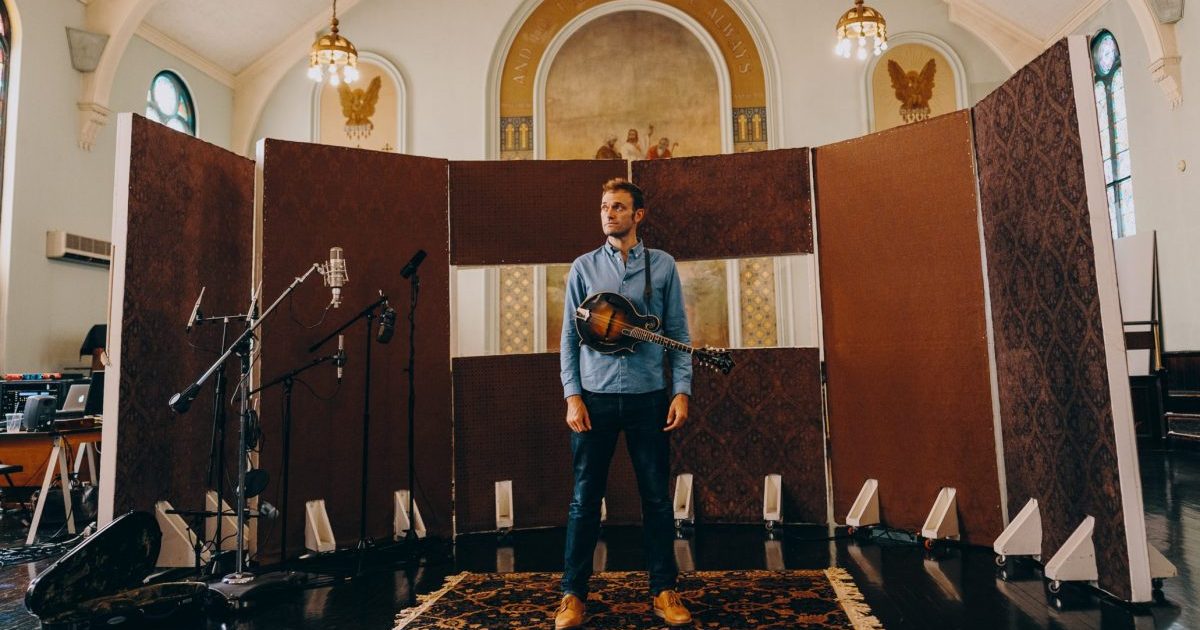Valerie June’s new album – Owls, Omens, and Oracles (released on April 11 by Concord Records) – begins with a snare and a hi-hat. A simple, straight-forward rhythm. Something to wrest you from your chair and get you moving your body.
After a few bars, her distinct, earnest, energetic vocals enter and it feels as though you’re surrounded by a circle of Valerie Junes singing in delightful unison. Urging you on. It’s just her voice and the drum for thirty-five seconds, then she lands on the word “joy” and the whole song bursts open with a distorted guitar and so many cymbals.
Like the “Joy, Joy” for which the song is titled, sound layers build and build, rippling out further and further until it all fades. By then, you’re well into the room. The colors are swirling. There seems to be joy and love hanging from the chandeliers. If you close your eyes, perhaps you can imagine the colors bursting forth from the guitar when it finally takes a solo.
Indeed, whether or not you experience synesthesia – a condition some musicians report where they associate sound and color – there is something undeniably colorful about the music June puts into the world. This is as true as ever on the new disc, which feels even more focused on joy’s pursuit and on holding joy aloft once it is within one’s grasp.
The celebrated poet and activist adrienne maree brown, who wrote June’s promotional bio for the project, notes: “This album is a radical statement to break with the skepticism, surveillance, and doom scrolling – let yourself celebrate your aliveness. Connect, weep, change, open.”
Indeed, connecting and weeping – through joy and heartache alike – is central to June’s artistic journey. This notion, that her music might be urging its listeners to celebrate aliveness, is particularly resonant on Owls. After all, June, who divides her time between Tennessee and New York, is a certified yoga teacher and mindfulness meditation instructor. One might extrapolate, then, that music, for Valerie June, is equal parts connective tissue and spiritual experience.
“No one who makes music can truly tell you where it comes from,” she said on a recent Zoom call. “We don’t know where we’re getting it from. It’s coming from someplace and I like to think that place is magical.”
Similarly, she adds, “Spirit is something that we don’t really know. We can’t really – exactly – put our finger on where it’s coming from. We just feel it. … I think that it’s a very spiritual thing to make music. It’s not necessarily religious, but it is definitely spiritual. It will connect you to a deeper part of yourself, but it will also connect you to deeper parts of other people – and to nature.”
Across her six albums in nearly twenty years, June has sung about nature plenty. The night sky, the creatures of the forest. From her rendition of a classic, “The Crawdad Song,” (2006’s The Way of the Weeping Willow) to the eagle and rooster in “You Can’t Be Told” (2013’s Pushin’ Against a Stone), to the “still waters” and “dormant seas” of “Stardust Scattering” (2021’s The Moon and the Stars: Prescriptions for Dreamers), June has turned to nature for solace, clarity, and metaphor.
Lately, though, she has been somewhat haunted by owls.
“In Tennessee,” she explains, “we have a pond behind the house and there’s a lot of wildlife. There’s muskrats and frogs and snakes and fish and all kinds [of animals]. We just went and bought like ten carp fish to go in the pond to help keep the algae down and stuff. But one morning, I was walking into the kitchen. I start my day with black tea and there’s mist on the pond in the morning, and so everything’s kind of like foggy. I’m making my tea. It’s like five o’clock in the morning and my eyes are all puffy. … There’s a window where you can see right across the pond and see this mist and everything, and there is an owl on this post of the fence on the far side. It’s just looking in at me, and I’m looking out at it.”
She and this same owl had a few more encounters after that initial one and June started thinking there was something to it. Whether it was a spirit visiting her on purpose, or just a magical coincidence that she and this creature were in the same place at the same time on a planet so full of people and creatures, there was something to this brief, recurring coexistence.
While June admits she never sits down on purpose to write a song – she opens to them and they come – the owl started to worm its way into her periphery while she was writing. She started reading everything she could find about owls, learning about their habits and idiosyncrasies. She felt like she was harnessing some owl energy as she captured the melodies that would make up this album.
“You can listen to the old blues songs,” she explains, “and you will hear about the black snake, or about the mojo, or different things like that. There’s magic in the music, if you ask me. I … enjoy being a root worker and understanding that music can shift moods. It has that power. It can start movements. It can energize people or make them feel so tender that they’re able to cry when they need to.
“I definitely feel like I work with those energies. I don’t just sing, you know. Because, I mean, there’s a lot of singers who have more beautiful-sounding voices than me. I’m weaving spells.”
Indeed, June’s spells weave their way through Owls.
One moment, she’s turning off the news to remember we’re all indelibly connected “like branches of an endless tree” (“Endless Tree”). Then, she’s breathing through doubt with “Trust the Path,” a quiet, echoic piano song that sounds like it blew in on a breeze. There’s the spoken word piece, “Superpower,” with its meditative background and dreamlike soundscape built atop her voice and producer M. Ward’s guitar, among other things. Suddenly June is clawhammering a banjo and singing about misguided love (“My Life Is a Country Song”). And finally, there’s the folky earworm song “Love and Let Go,” with its horns and piano and layered unison vocals.
The album starts with joy and ends with acceptance – which is part of joy. Though it weaves through different styles and soundscapes, there is this throughline of keeping to the path, trusting the light, sourcing the joy.
Most of this is due to June’s songwriting and performance, of course. But at least some of it can be credited to her producer Ward – the chameleon-like guitarist and singer-songwriter who has produced for and collaborated with a who’s who of indie artists. As for her experience with this particular collaboration, June doesn’t hold back when lavishing Ward with praise.
“It was kind of the most amazing experience I’ve had in making records,” she says.
“He can play anything. He’s on the vibraphones. He’s on the keys. He’s on the guitar. I mean. … [For him,] whatever genre a song wants to be is what a song is and at the end of the day I enjoy rocking out. I like turning up my electric guitar and my amp and just going crazy with this kind of like a dirty blues-rock sound. And him – he got the best tones and sounds in his guitar playing.”
The pair first decided to make a record together when they crossed paths at Newport Folk Festival. June noticed that they were on the schedule for the same day, so she texted Ward and he invited her up to sing with him.
“When I got offstage, after watching him play that blues-rock like just a genius, [my] jaw [was] on the floor. Like, that was amazing. It was just him solo, too, with like three or four different guitars up there. So I said, ‘Well, when are we gonna make this record we’ve been talking about making?’”
Two months later, they crossed paths again, this time at San Francisco’s Hardly Strictly Bluegrass Festival. “We were on the same day again, so auspicious,” she remembers. “And so we worked together there. He said, ‘Okay, we have to make this happen now. We’ve seen each other two times in one year.’”
Before another year passed, they were in the studio, running with the genre-defiant sounds that were pouring out of June’s magic mind.
The phrase June used to employ for describing her music was “organic moonshine roots” – a description she’s stopped using since her friend who coined it passed away. Meanwhile, her life has taken on its own metamorphoses. She has found and lost love, has branched out in new directions, has pulled in guitar, ukulele, and banjo. She has made music with artists as variant as the Avett Brothers and Blind Boys of Alabama (the latter appear in the background on Owls). When not on the road, she hosts meditation retreats and teaches mindfulness at places like the Kripalu Center for Yoga and Health in the Berkshires. She writes poetry and has published a picture book for children.
Naturally, all of this has fed her appetite for melody and it’s all added to the tapestry of sound that defines her music. There is country in there, for sure. Also some semblance of jazz, R&B, pop, and just plain individualistic, raw grit. This time around, on Owls, Omens, and Oracles, genre seems like a silly thing to even try to pin down.
During a SXSW interview in 2023, writer Wajahat Ali asked June about the ineffability of her style and she didn’t hesitate. “It’s Valerie June music,” she told him. “I’m a singer-songwriter and whatever comes out, comes out. Sometimes it is honey, sometimes it’s vinegar.”
Sometimes it’s black tea and mist on a pond, crickets chirping and muskrats scattering, an owl standing still on a post, blinking its eyes as you stand there blinking yours. It’s a reminder of what truly matters.
To June, what matters is everything.
“Are you ready to see a world where we can all be free?” she asks. “I’m ready to see a world where we can learn to disagree with each other and still live together peacefully.”
“We’re ready to see this world be a place of togetherness,” she adds later. Learning to cooperate, she says, is “not just important for humans. It’s important for all of nature. … Nature will be okay, of course, without us. But it would be nice if we could figure out ways to move toward a more cooperative existence with all [things] in nature.”
Photo Credit: Travys Owen




